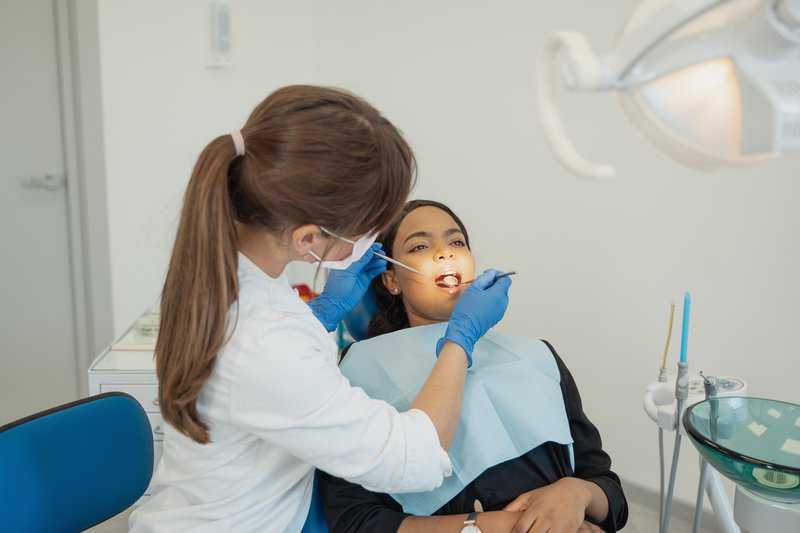Oral Implants Demystified: Everything You Need to Find Out About Restorative Solutions
In the realm of restorative dentistry, dental implants stand as a modern-day remedy that has transformed the method we come close to missing teeth. With their ability to flawlessly assimilate with all-natural teeth, oral implants have actually ended up being a prominent option for individuals looking for a long-lasting fix for tooth loss. Yet what precisely are oral implants, and just how do they work? Understanding the ins and outs of this treatment, the advantages it uses, and what to anticipate during recovery and maintenance can drop light on the comprehensive nature of this corrective option.
Recognizing Oral Implants
In modern-day dentistry, oral implants offer as durable and stable replacements for missing teeth, giving clients with a long-term service for recovering their smiles and dental wellness. Understanding the parts of oral implants is vital for individuals considering this restorative option. A common oral implant is composed of three main components: the dental implant component, joint, and prosthetic crown.
Advantages of Oral Implants
Dental implants supply an array of benefits that add to enhanced dental feature and enhanced quality of life for individuals with missing out on teeth. Unlike conventional dental bridges or dentures, implants are created to fuse with the jawbone, offering a stable foundation for replacement teeth.
Moreover, dental implants feel and look like natural teeth, permitting seamless combination right into daily activities such as consuming and speaking. They offer a comfy and safe fit, removing the pain commonly related to detachable dentures. In addition, implants do not need change of nearby healthy teeth, maintaining general oral wellness.
Additionally, oral implants advertise dental health and wellness by avoiding more bone loss and wear and tear of the jawbone. This stability additionally supports facial looks, avoiding the sunken appearance that can accompany missing out on teeth. Overall, oral implants supply a reputable and long-term solution for individuals looking for to recover their smile and dental feature.
Procedure for Oral Implants
With an understanding of the advantages oral implants supply in terms of sturdiness, natural look, and oral health conservation, it is vital to understand the thorough procedure involved in their placement. The process of getting dental implants commonly entails several stages and requires cooperation in between the client, dentist, and often a professional like a dental cosmetic surgeon or periodontist.
At first, a comprehensive examination is carried out to assess the patient's oral wellness and figure out if they are an appropriate prospect for dental implants. If the individual is regarded qualified, the following action is the medical placement of the dental home implant into the jawbone.
After the implant is positioned, a recovery duration of several months is necessary to enable osseointegration-- the procedure where the implant merges with the bone. Ultimately, an abutment is connected to the implant, and a personalized synthetic tooth or crown is positioned on top, bring back function and aesthetics to the original site client's smile. dental implants Campbelltown NSW. Routine follow-up visits are vital to check the recovery process and ensure the lasting success of the dental implant
Healing After Oral Implants
Following the successful placement of dental implants, a vital element to think about is the post-operative healing process. Healing after dental implant surgical treatment is a crucial phase that needs cautious interest to guarantee appropriate healing and integration of the implants.

Normal follow-up appointments with the dental practitioner are essential to monitor the healing progress and ensure that the implants are integrating successfully. By adhering to these recuperation standards and looking for timely expert guidance if any issues occur, individuals can enhance their healing process and set the structure for effective long-lasting implant restoration.
Upkeep of Oral Implants
Appropriate maintenance of dental implants is vital to ensure their longevity and capability. Following Click This Link the first healing period after dental implant positioning, persistent care is crucial to protect against issues and preserve dental wellness. Routine dental exams, normally every six months or as recommended by your dentist, are essential for checking the condition of the implants and identifying any kind of prospective issues early on.
Daily oral hygiene practices play a substantial role in maintaining the stability of oral implants. Cleaning at least two times a day with a soft-bristled brush and utilizing non-abrasive tooth paste assists to cleanse the implant crowns and bordering gums. Flossing once daily is additionally vital to remove plaque and debris from hard-to-reach locations between the implants.

Verdict
In final thought, dental implants are a corrective service that supplies many benefits such as better appearance, functionality, and dental health. If you are thinking about dental implants, seek advice from with a dental specialist to identify if this alternative is best for you.